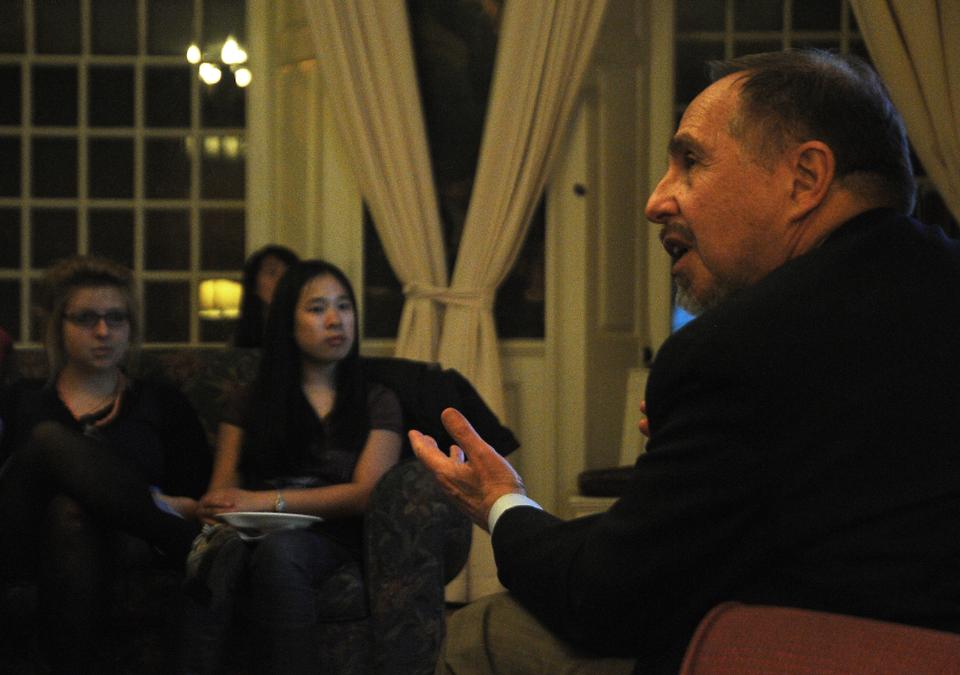
News
Harvard Researchers Develop AI-Driven Framework To Study Social Interactions, A Step Forward for Autism Research

News
Harvard Innovation Labs Announces 25 President’s Innovation Challenge Finalists

News
Graduate Student Council To Vote on Meeting Attendance Policy

News
Pop Hits and Politics: At Yardfest, Students Dance to Bedingfield and a Student Band Condemns Trump

News
Billionaire Investor Gerald Chan Under Scrutiny for Neglect of Historic Harvard Square Theater
Professor Talks Disease Stigmas
Discussion centers on mental health stigmas in China

Just hours after returning from a trip to China, Anthropology Professor Arthur Kleinman delivered a talk about the long-standing stigmatization and subsequent marginalization of the mentally ill population in Chinese society.
Using his expertise in the areas of medical anthropology and psychiatry, Kleinman pointed to various cases of stigmatization in China. People suffering from schizophrenia, HIV/AIDS, leprosy, or epilepsy often face social marginalization because of their illnesses.
Unlike in the United States, where people are born “fully human,” Chinese society demands that individuals “become human,” said Kleinman, who has spent years researching mental illnesses and violence in China and Taiwan.
“Your great task in life is cultivating your humanity,” Kleinman said. “People with stigma not only lose their moral face, but are not considered human.”
Further comparing the U.S. and China, Kleinman noted that Chinese mental illness hospitals emphasize the protection of society from the mentally ill—a mindset that cultivates a perception of the mentally ill as unpredictable, out of control, and potentially dangerous.
“Stigmatization makes a person a dead door, or si menzi, marginalizing them from their families, professions, society and themselves,” Kleinman said.
Kleinman added that the solution to the problems of stigmatization will come from “unintentional cultural changes”—which have been happening over the past couple of decades—that eventually strip mental illnesses of stigma.
Kleinman’s talk was sponsored by the Medical Committee of Harvard China Care, a student-run organization that seeks to guide abandoned, orphaned, and special needs children in China toward brighter futures.
Daphne Y. Xiao ’11, who attended the talk in the Lowell junior common room, said that she found Kleinman’s comparative analysis between Chinese and American societies’ dealings with the issue of stigmatization to be “the most interesting part of his speech.”
Want to keep up with breaking news? Subscribe to our email newsletter.
From Our Advertisers

Over 300+ courses at prestigious colleges and universities in the US and UK are at your disposal.

Where you should have gotten your protein since 1998.

Serve as a proctor for Harvard Summer School (HSS) students, either in the Secondary School Program (SSP), General Program (GP), or Pre-College Program.

With an increasingly competitive Law School admissions process, it's important to understand what makes an applicant stand out.

Welcome to your one-stop gifting destination for men and women—it's like your neighborhood holiday shop, but way cooler.

HUSL seeks to create and empower a community of students who are seeking pathways into the Sports Business Industry.
